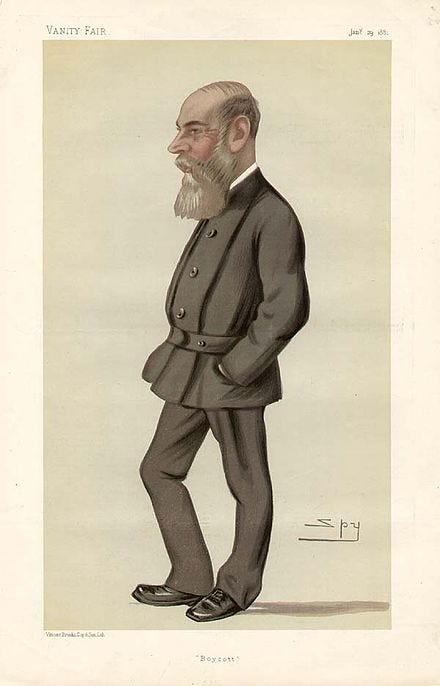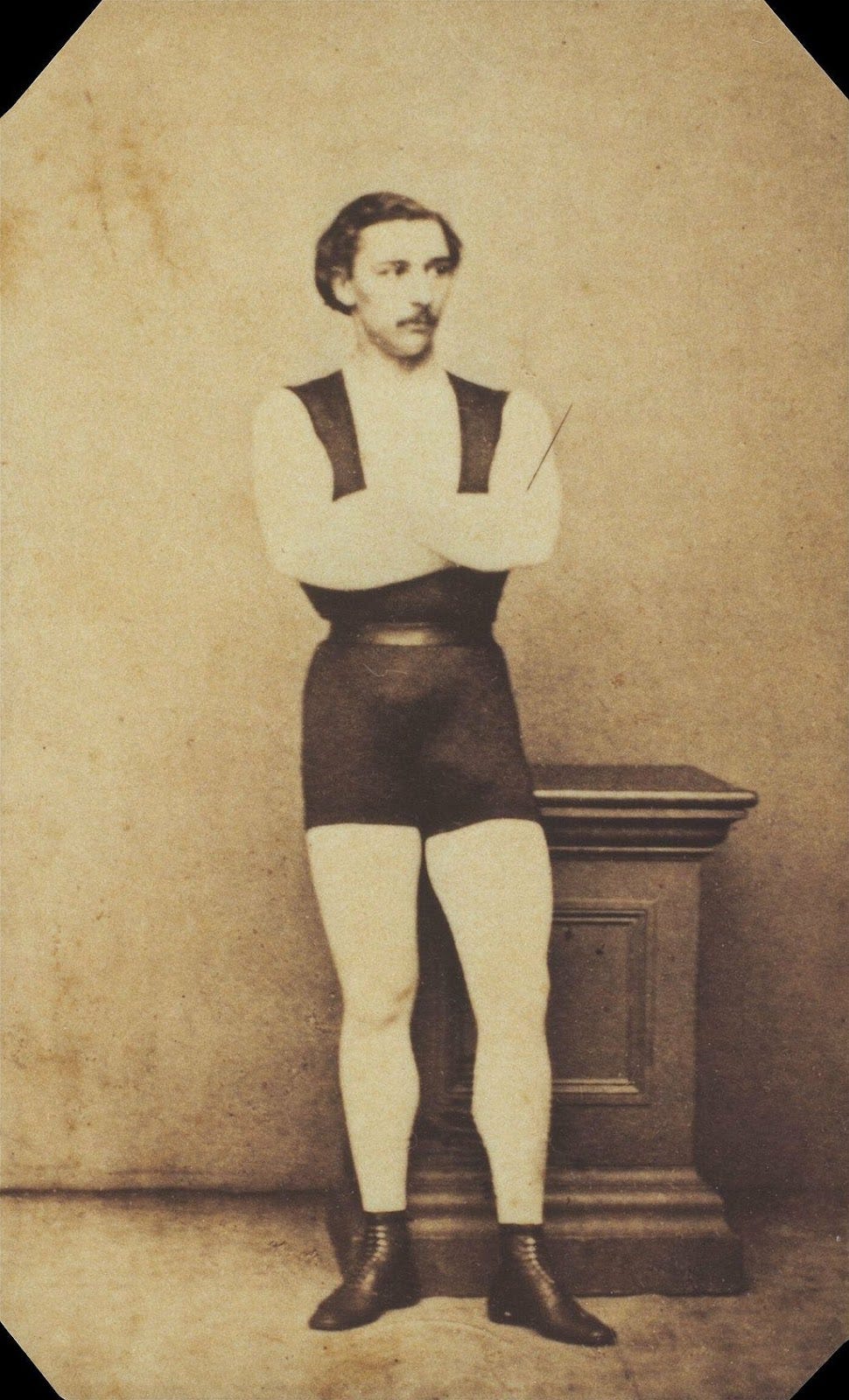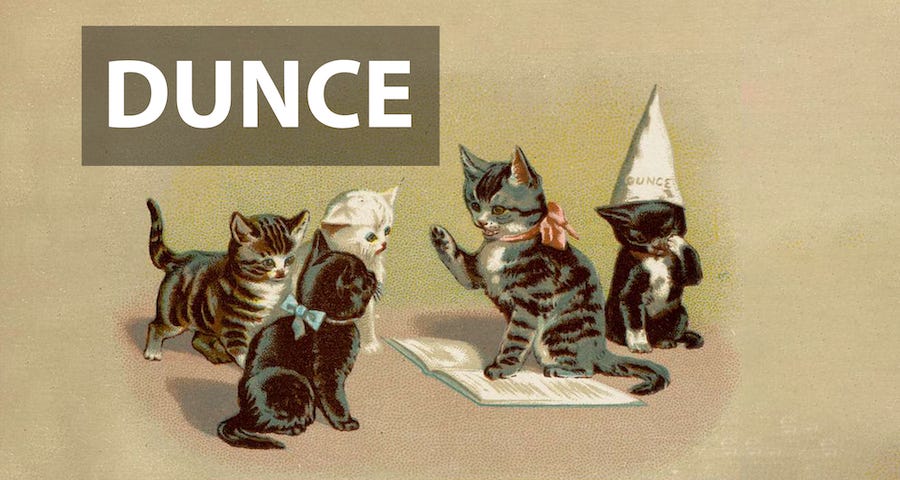9 Common Words That Are Actually People's Names
They’re called “eponyms,” and they’re almost always a bit of a surprise.
It’s an uncanny feeling to discover that a word you’ve been using for most of your life has a little guy hiding inside it waiting to surprise you. This is fitting, as the little guy hiding in the previous sentence is Guy Fawkes, who gives us the word guy—originally in the sense of a burned effigy—and who is famous for hiding inside Parliament and trying to surprise the king of England (unsuccessfully, hence the burned effigies.) But Guido Fawkes is not the only sneaky little guy wandering around dressed up in a word costume, and the incredible cast of characters that makes up the world of common eponyms (i.e., words that started as people and then got used so much we forgot about it) includes a clown, a saint, a trapeze artist, and two entire earls.
Diesel, the fuel, is none other than Rudolf Diesel, the German man who designed the diesel engine. Imagine having a cool and tough name like “Diesel” before it was cool and tough because you’re the one who eventually makes it cool and tough, so everyone just calls you “Rudolf” in your lifetime.
It’s broadly known that the sandwich is named after John Montagu, the 4th Earl of Sandwich, but I wanted to include this one here because it felt important for me to have two earls in this piece. The first reference to the sandwich is in a contemporary account by Pierre Jean-Grosley in Londres, a French guide to London culture, which explains the incredible moment when bread finally went beast mode with the following anecdote about English excesses in gambling:
A minister of state passed four and twenty hours at a public gaming table, so absorbed in play that, during the whole time, he had no subsistence but a bit of beef between two slices of toasted bread, which he ate without ever quitting the game. This new dish grew highly in vogue during my residence in London: It was called by the name of the minister who invented it.
What a legacy.
Incidentally, the Sandwich that John Montagu was earl of comes from the Old English words sand and wīc, meaning “Sandy Harbor.”
Our second earl of the evening is James Thomas Brudenell, the 7th Earl of Cardigan, who on the one hand led the heroic but famously catastrophic Charge of the Light Brigade but on the other hand looked so good in casual wear that Taylor Swift wrote a song about his waistcoat. Absolute legend to have given both Tennyson and Taylor a number one hit.
The Cardigan that James Brudenell was earl of comes from the Welsh Ceredigion, meaning “Ceredig’s Land,” something Taylor Swift has not yet weighed in on one way or the other.
When the landowner Captain Charles C. Boycott woke up one morning in 1876 to discover that his crops were going untended because no one would do any business with him until he changed the terms of his rent, he must have thought, “What on Earth is happening to me?!” I find this quite amusing to think about.

In 1867, the British singer George Leybourne had a hit with "The Flying Trapeze," whose chorus goes:
He'd fly through the air with the greatest of ease,
That daring young man on the flying trapeze.
The song was about the French acrobat Jules Léotard, who was famed both for his pioneering trapeze work and for the saucy little knitted onesie he invented to ease movement and show off his bangin’ bod as he soared through the air.
Despite being first in flight with both the leotard and the trapeze, Jules only lives on in the former. Trapeze is from the Latin trapezium, and it means “quadrilateral,” which is terribly boring of it.
“What’s another word for a Merry-Andrew?” said probably no one ever, but the answer is “a zany,” which was a noun before it was an adjective. And like the Merry-Andrew (which means a buffoon, a Jack-Pudding, a Pierrot, a fribble, or a Pantaloon — OK, fine, there are a lot of other words for Merry-Andrew), Zany was a type of guy. But unlike the Merry-Andrew, that guy was not Andrew (no one knows who Andrew was), but Jack. More specifically, Zany was an alternate spelling of Zanni, a Venetian variant of the Italian Gianni, which is the nickname version of Giovanni, as Jack is to John.
This Gianni wasn’t a specific guy but the name of a foolish stock character in Italian Renaissance comedies. A Jack-Pudding, if you will. A fribble.
This whole story would make a lot more sense if the 13th century Scholastic philosopher famous for his astonishingly complex metaphysical argument for the existence of God had been known as Wicked Smart Scotus instead of Duns Scotus, but we’ve got to work with the Scotus we have, so here goes: The fact of the matter is that the dunce that comes from Duns doesn’t actually come from Duns, but from dunses. And the dunses were the dudes who did Duns’s dirty work by annoyingly hair-splitting about his ideas like those guys in your Philosophy 101 course who read the Wikipedia page for Wittgenstein and never shut up again.
After a few centuries of relentless pedantry from the dunses and the Scotists (as they were also called), the word came to mean “dullard,” which is terribly unfair to Duns Scotus, who really did have a spectacularly complicated proof of God.
Like Rudolf Diesel before him, the rancher Samuel A. Maverick had a world-beatingly cool surname that couldn’t do him any good because he hadn’t yet invented the thing that would make it cool in the first place. It was perhaps some cosmic assimilation of this paradoxical tragedy that caused him to be so incredibly forgetful when it came to the important matter of branding his cattle. As a result, neighboring ranchers who found Sam’s unmarked steer wandering amongst their own herds started referring to them as “mavericks.”
Over time, “maverick” came to mean “without a master” more generally. This doesn’t do you much good one way or the other if you’re a cow, but it can be extremely beneficial for your personal brand if you’re a person.
Grog (watered-down rum) technically comes from “grogram,” which is a coarse and scratchy fabric that was used to make cloaks in the 1700s. But it gets there by way of one of our little guys, Admiral Vernon, who was known to the sailors under his command as “Old Grog” because of his grogram cloak. Old Grog was also known for watering down the rum so his sailors wouldn’t get too inebriated, but—like so many resourceful sailors before and after them—they managed to anyway. Hence “grog” and, by extension, “groggy,” meaning “drunk.”
According to Francis Grose’s indispensable 1811 Dictionary of the Vulgar Tongue, Admiral “Grog” Vernon also gave us the delightful term Grog-Blossom, which is “a carbuncle, or pimple in the face, caused by drinking.” Old Grog isn’t around to account for himself, but I’m sure if he had his time again he’d much rather have been a Diesel or a Maverick.















Interesting, and so wittily written (as always).